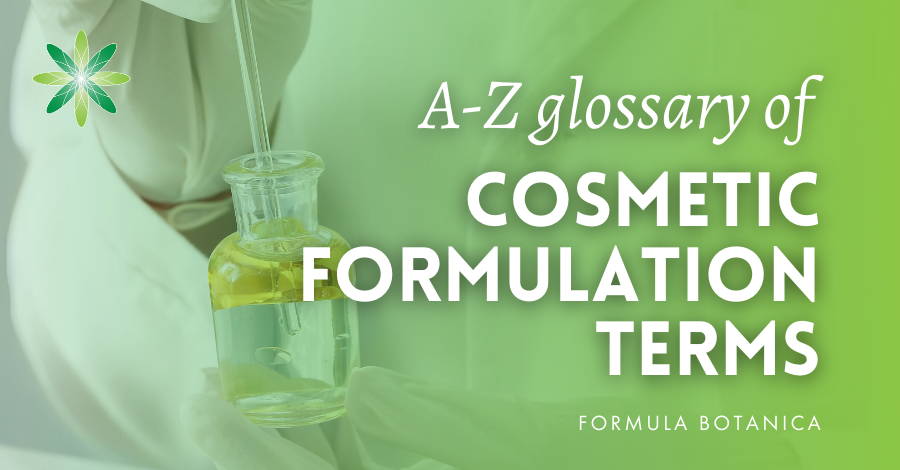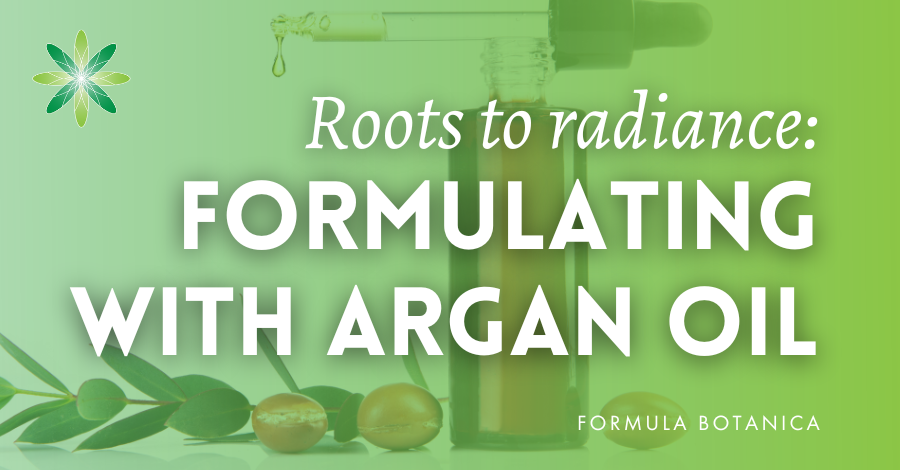No doubt you’ve read many articles on the internet of people avoiding synthetic ingredients such as mineral oil, SLS and phenoxyethanol, but did you know that are many natural ingredients that people prefer to avoid in their beauty products?
This topic isn’t so widely discussed as many people think that all-natural ingredients are universally loved by green beauty advocates and consumers. Nonetheless, it is important for any formulator to understand why people may choose to avoid certain lotions and scrubs if they incorporate a natural ingredient that isn’t as popular as they think.
We decided to investigate the natural ingredients that people choose to avoid by speaking to a few of our green beauty influencer friends. We asked each of the bloggers the same question: “Which natural ingredients do you avoid in skincare or haircare products and why?“. The answers were fascinating and we’ve gathered them together in this blog post.
Ailish from the Glow Getter
Which natural ingredients do you avoid in skincare or haircare products and why?
“This is an interesting question because for me, I think most natural ingredients in skincare are great. It’s more a question of new ingredients coming out from around the world and which my skin has never tried before. It’s those which I’m likely to avoid because my skin might react with them.
“For example, when I was in New Zealand, I reacted to an ingredient over there which was made from a certain grape and the pulp of kiwi seed so I couldn’t use it, but I’ve have seen others have incredible results with it. Similarly with an ingredient from South Africa that was made from Kigelia, I completely reacted to it but others have seen incredible results.
“So, I tend to stick to ingredients that I know my skin will respond well to like rosehip and jojoba oils. The new shiny ingredients are the ones I tend to stay clear of purely because of how sensitive my skin is.”
Find Ailish at The Glow Getter.
Formula Botanica response: Ailish raises an important point in her answer, which is that anyone can have a reaction to any ingredient. We’ve seen the beauty industry constantly try to reinvent itself with the newest, undiscovered botanicals (listen to our Top 10 trends spotted at In-Cosmetics Global in 2018), but sometimes we’re better off sticking to tried and tested ingredients that we know have a fantastic effect on the skin. There’s certainly a place for finding new sustainable botanicals to incorporate in our formulations, but we have to keep in mind that some customers may have skin reactions to unfamiliar ingredients.
Lynda from Wonderlusting Lynda
Which natural ingredients do you avoid in skincare or haircare products and why?
“As an allergy prone, sensitive-skinned gal, scrutinising the ingredients list is something I have been doing for years and is now second nature. Natural, of course, does not mean it will work for all skins. I avoid citrus essential oils as they irritate and inflame my skin. Coconut oil, while I find works wonders for my hair and body, I avoid in all facial skincare as I find it pore clogging.
“Bentonite clay, ideal for soaking up moisture in oily skin, makes my dry skin feel like a slab of desert. Honeysuckle extract as the only preservative in a water-containing products is one I’ll always give a miss as I’ve found mould in such products.
“I do not avoid all animal-derived ingredients but cochineal (as there are so many alternatives now), emu oil and snail mucin are ones that make me shudder at the thought of smearing on my skin.
Finally, alcohol even from a natural source I prefer in my glass rather than on my face so that’s another ingredient I avoid due to its drying effects on my skin.”
Find Lynda at Wonderlusting Lynda.
Formula Botanica response: Lynda clearly knows which natural ingredients she needs to avoid in the formulations she uses; she knows what her skin loves. Many of your customers will be exactly the same, which is why it’s so important to know exactly who you are formulating for when you create your butters, balms and creams. When you design a new formulation, always make sure you find a small focus group of people to test out your products for at least a month (or longer) to learn what effect they have on the skin.
Amber from This Natural Bee
Which natural ingredients do you avoid in skincare or haircare products and why?
“A natural ingredient I avoid is carmine – it’s seen in quite a lot of natural makeup brands that need to get the colour red, however it’s made from crushed beetles which I think is quite frankly gross and unnecessary. I also do not use any products that are made with bee venom – I am a huge advocate for bees and their venom is only released when they sting, which means that the bees need to be agitated in order to attain their venom which is really sad and disappointing, especially when bees are in decline already.”
Find Amber at This Natural Bee.
Formula Botanica response: We agree wholeheartedly with Amber on this point. There is no need for animal cruelty in any form in the beauty industry and we also feel that the beauty industry can do better. Whilst we understand that some formulators seek to use the most effective high performance ingredients in their serums and creams, there are always sustainable and cruelty-free alternatives.
Ana from Ana Goes Green
Which natural ingredients do you avoid in skincare or haircare products and why?
“As someone with skin that can become easily sensitised, I am wary of formulas that use too much of certain essential oils such as eucalyptus which can cause my skin to flare up. I have learnt over the years that quality of the formulation is key, so I would always try something even if it did have these essentials oils in it. But, in my opinion less is more with skincare!”
Formula Botanica response: Less is certainly more with skincare and this is very much our ethos at Formula Botanica! Some of the finest formulations we’ve tried over the years are those with only a few ingredients in them. Certain essential oils can cause skin reactions, so anyone with sensitive skin should conduct a patch test before they try a new formulation. As a formulator, you need to be aware of the fact that some of your customers may seek to avoid some of the essential oils you’re using.
Ariane and Delphine from F-Toxins
Which natural ingredients do you avoid in skincare or haircare products and why?
“While we don’t avoid them completely, we are very cautious about using essential oils in our beauty routines. For all the good that they can do, they can also cause real damage if used incorrectly. For example, it is very important to make sure you don’t apply photo-sensitising essential oils to your skin before going out in the sun as it can cause pain, swelling and blistering. If and when we do use essential oils – or products that contain them – we make sure that they are organic. This is something we feel really strongly about because essential oils are concentrated essences of the plant so if they are grown using harmful chemicals or pesticides, these also become concentrated. We definitely do not want to apply that to our skin!”
Find Ariane and Delphine at F-toxins.
Formula Botanica response: Essential oils are very potent botanical ingredients that can have amazing effects on the skin, but can sometimes cause skin problems when used in the wrong dosages or in an unsuitable formulation. Here in the EU, all formulations have to be approved by a safety assessor (listen to our guide on how to comply with cosmetics regulations), which would generally prevent photo-sensitising oils from being incorporated at too high quantities, but there will be brands outside of the EU that have not been safety checked and which don’t comply with essential oil dermal limit requirements.
Which natural ingredients do you avoid in skincare formulations and why? Leave us a comment below!
Leave us a comment

Gemma Ortega Perez was Formula Botanica’s Relationship Manager between 2015 – 2019. To read more about the Formula Botanica team, visit our staff page.



























